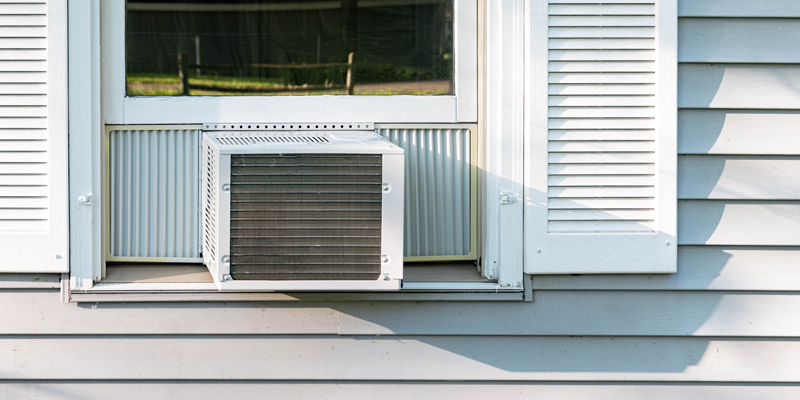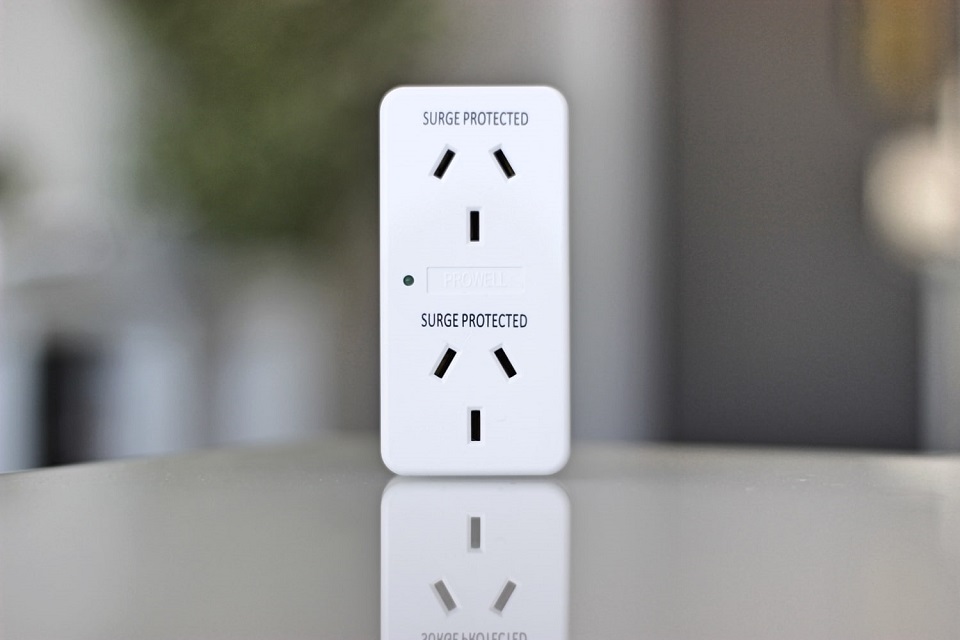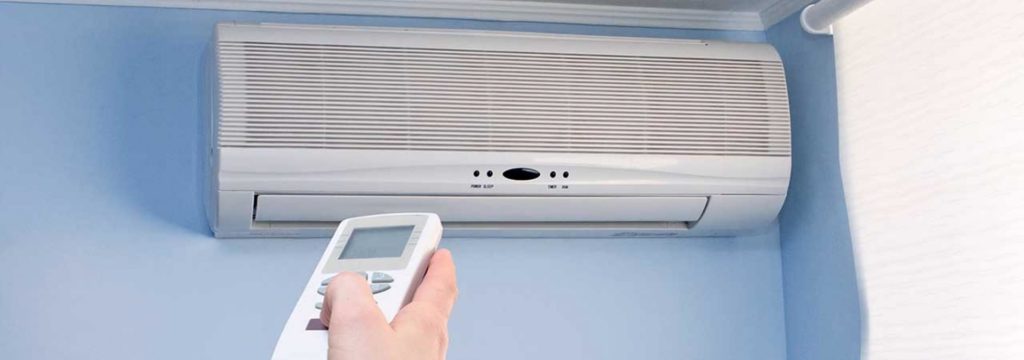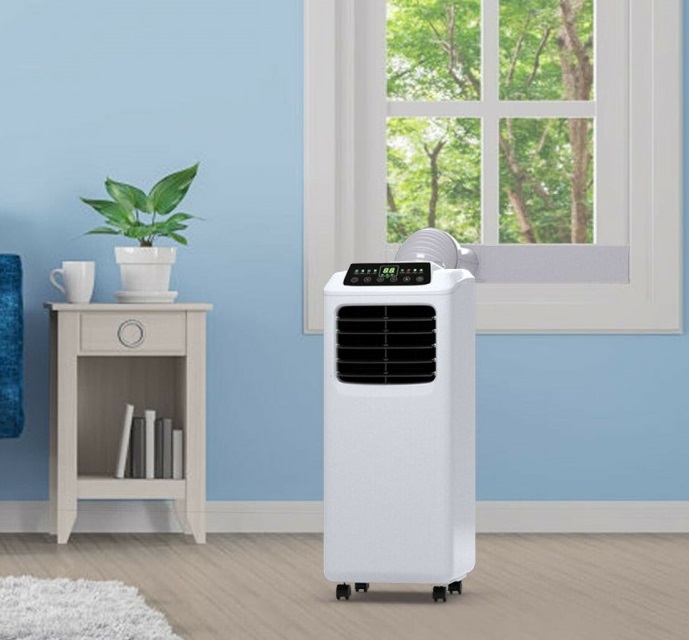

It’s a clear sign that something is wrong if your air conditioner sounds like a jet engine. While an air conditioner may occasionally make unusual noises from the condenser fans, jet engine noise poses a serious or major issue. Jet engine noises from an air conditioner sometimes come with hissing, squealing, and buzzing sounds. Now, it is okay to want to call on an HVAC (heating, ventilation, and air conditioning) specialist. Still, you can fix this issue without too much cost and technicality, especially if it is discerned on time. Also, it needs to be fixed immediately, even after diagnosis, to prevent further damage. Here is a complete guide on what to do when your air conditioner sounds like a jet engine.
Modern air conditioners are designed to make as little noise as possible – almost quiet for more contemporary designs. So, if you hear any noise, whether it is a crackling sound, a buzzing nose, or even one that sounds like a jet engine – that is a sure sign that something is wrong. To identify why your AC is leaking or making disturbing noises, you must identify the sound, the intensity, and the type of sound. A faint clicking in the night, constant buzzing, or a sudden high-pitched squeal indicates a malfunctioning or a failing compressor. A frozen evaporator and condenser fan coils could also cause a faint, jet engine-like sound. Read below for more information on why your air conditioner could be sounding less than our prepared list of the best energy-efficient air conditioners.
The condenser fan of an air conditioner is created to remove the refrigerant’s heat. The refrigerant of the AC is located inside the condenser’s hollow passageways, like the one in this hOmeLabs Window Air Conditioner. The refrigerant is responsible for sucking the heat out of the room when the air conditioner is working. While some other signs predict a broken condenser fan, such as the fan not turning on or running even when the AC is turned off, the noise is the most prominent.
A jet engine sound could be heard if the outer unit’s condenser fan needs to be fixed. Jet engine noises arise when there is an electrical problem with the fan or when dirt and debris build up inside the unit. This is the same thing that could occur when your car air conditioner sounds like a jet engine.
The compressor of an air conditioner Trusted Source A/C Compressor | Cars.com A/C Compressor – What is it? What is it for? Find out on Cars.com. www.cars.com car or window is the heart of the entire unit. The compressor is the element that pumps the air out of the condenser under the right pressure. When this unit becomes faulty, it is difficult for your air conditioning unit to function properly. But even more so, it is bound to make jet engine sounds. Some factors that can cause your AC compressor to break down include dirty AC coils (especially if it isn’t cleaned out for too long), compressor overheating, and power surges. Other causes are low refrigerant charge, blocked suction lines, and electrical problems aside from power surges.
As the name implies, the evaporator coils are responsible for turning the heat and fluid into cold air. The evaporator coil is usually inside the air handler or blower compartment. Here, the evaporator coil absorbs the heat from the fluid, then removes the humidity from the absorbed heat to make dry air. This air is then distributed immediately by the evaporator coils to the compressor through the condenser fan. Recall that the fan distributes the air, and the compressor ensures it is of the right pressure. The indoor unit’s evaporator coils may sound like jet engines if they become clogged with ice and freeze. Coils can also freeze if there is a leak in the refrigerant, a bad expansion valve, insufficient airflow, or bad refrigerant lines.
Even though your air conditioner should make some noise, it shouldn’t make loud or alarming noises. Other sounds you should pay attention to are listed here.
Any gurgling or bubbling sound from the AC’s drainage line obstruction, crack, or hole that makes you ask, ‘why is my window air conditioner leaking water?’ suggests a problem with the system’s refrigerant flow. If you ignore this sound, the AC will break down sooner or later. Running water sounds indicates excessive moisture, which is bad for the unit. However, if you choose one of the best air conditioners that were tested and selected after days of research, you won’t face such a problem for sure.
When you hear rattling, the fan’s blades may be loose, or the fan may be out of balance. Also, if the A/C blower makes a clamor that sounds like banging, there is presumably a free or broken part in the blower. A rattling sound could also mean that the compressor parts have become loose. An HVAC professional must help fasten or replace the system's loose or broken parts Trusted Source How Air Conditioners Work: The Parts of an Air Conditioner | HowStuffWorks Let’s get some housekeeping topics out of the way before we tackle the unique components that make up a standard air conditioner. home.howstuffworks.com to fix a rattling noise from the compressor. Compressor replacement may be required if that does not resolve the issue.
Problems with the compressor, worn-out belts, or loose belts are the most common causes of grinding noises from an air conditioning unit. The pistons in compressors that compress the refrigerant gas make a grinding sound. This noise is produced as the compressor wears down, which may indicate that your air conditioner needs to be replaced entirely. Minor situations might require that you replace just the compressor. One great air conditioning alternative is the Friedrich Chill Premier.
A buzzing sound could be a sign of many problems, and they are serious. Dirty condenser coils can produce a buzzing sound. Cleaning the coils should be enough to fix the problem for a handy homeowner. An HVAC technician will be required to assist with more serious issues, such as faulty fan motors or loose or unbalanced fan blades. Additionally, components made of loose metal that touch each other or have an electric current running through them may buzz. A refrigerant leak would be the most serious issue, requiring immediate attention from an HVAC technician.
A screeching or squealing sound could be caused by problems with the fan or the fan belt. The fan motor’s bearings may be defective, or the belt needs to be changed. If a compressor makes a high-pitched squealing or screaming sound while operating at very high pressure, it may have a serious problem. The sound may be coming from the compressor itself or an alarm informing people that the system is about to shut down due to a dangerous situation. Fan motor squealing noises should not be overlooked!
The condenser unit can make a constant humming sound if something gets stuck there. The unit’s vibrations could also cause the foreign object to hum and vibrate. Though the debris that gets into the unit is easy to remove, it can lead to worse situations if left there for too long. Humming could also be a sign of a defective contactor relay switch or a problem with the fan. When it receives a signal from the thermostat, the switch turns on the condenser. If the air conditioner’s contactor relay switch is broken, using it could cause severe damage and lead to noise. On another note, a clicking sound that doesn’t stop indicates an electrical issue, such as a bad thermostat or control interface or a compressor or capacitor issue. The unit could suffer significant damage if electrical issues Trusted Source Aspect of Home Electric Appliances Damages due to Lightning and Future Problem This paper shows the investigation results on the change of lightning damages of home electric appliances, which has been done 4 times from 1987 through 2006. www.researchgate.net are not fixed.
A hissing sound from the air-conditioner can show minor issues like a leaking duct or an incompatible air filter. If it sounds like it is coming from the condenser unit, that indicates a more serious issue, like a leak in the refrigerant, a broken compressor, or a broken expansion valve. If you discover a problem with the compressor, it could be dangerous because it means that the compressor’s internal pressure is too high. If your compressor begins to hiss, whistle, or scream, immediately turn off your air conditioner and contact an HVAC technician.
Having discovered what kind of sound is coming from your air conditioner, you can now move forward to dealing with it. You shouldn’t contact an HVAC repair professional without knowing what is wrong with your air conditioning unit. So, when you discover that your air conditioner sounds like a jet engine, try first to investigate the unit when you hear an unusual sound from your air conditioner and try out the list and carry out these first-aid solutions. If there is no positive result, do not hesitate to contact HVAC system repairs right after.
It is almost impossible to keep your outdoor air conditioner free from dirt. Natural elements bring dust, leaves, dirt, and other debris. These elements can then make their way into the air conditioning unit and its critical components. Therefore, you need to take time to clean the unit every once in a while. Before removing the cover, turn off the unit to ensure your safety. Please remove the top grill, grab loose debris, and use a hose to clean it up. Remember to close it again after cleaning it.
When your air conditioner is turned on, there is vibration in the exterior and interior of the unit. Over time, the shaking may cause parts to become loose. Remove the top of your outdoor air conditioner with a screwdriver to examine the condenser fans carefully. Turn on the conditioner and watch for loose parts. When they are moving, loose parts are easy to locate. Also, check if there is any blockage.
Clean the coils regularly to remove dirt and dust and prevent frost. If you see ice buildup, turn off the power to the appliance and wait until it is completely dry before turning it back on.
The copper refrigerant pipes can make a noise similar to a jet engine when they come into contact with an object like a neighboring wall. There should never be anything rubbing against the refrigerant lines. Rubber insulation can shield the tubes from direct contact with a wall or any nearby structure to reduce noise and friction. It is best to avoid metal-on-metal contact whenever possible.
If all the steps above do not seem to eliminate the sound, you have to call for the help of an HVAC professional. This is to ensure that your AC is given to an expert who understands the unit’s components. It is also so that you don’t damage the AC even more by tapping into fragile components.
Getting a good air conditioner is one of your home’s major needs. It saves you the effort of having to repair often. However, there is always a possibility that your air conditioner will make some disturbing noises. Not only does an air conditioner sound like a jet engine, but running water and clattering are also among the strange sounds you should investigate. Follow this guide to take preventative measures. Some of them include cleaning the outdoor unit, checking the coils, and inspecting the refrigerant lines. if troubleshooting does not resolve the issue turn the AC off until an HVAC technician inspects it to prevent additional damage.





